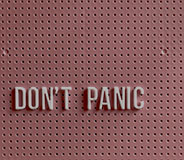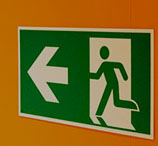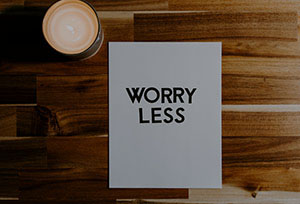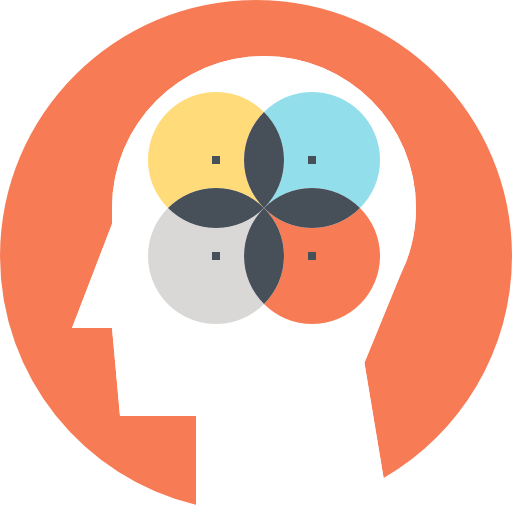ANXIETY
Better Life Therapy offers compassionate outpatient treatment for individuals with anxiety
IS MY ANXIETY NORMAL?
Everyone experiences a small to moderate amount of anxiety at times. Our flight-or-fight response can be a natural and even helpful response. But for some, anxiety dominates most of their waking and sleeping hours, and can be unending and paralyzing.
When worries continuously nag at you, when you can’t sleep at night, when you avoid social situations or things you enjoy, it’s time to seek help from a professional.

WE CAN HELP
There’s a lot to be anxious about these days. If you need a space to make sense of it all, we have therapists who can help.
Anxiety can take many forms:
- Feelings of dread
- Instances of panic in which your limbs go numb, you become dizzy, and everything feels a bit unreal
- Fear of presenting
- Feeling nervous and uncertain in social situations
- Worries about the future
There is help available. Through a combination of coming to better understand your story, learning new coping skills, social skills, developing a relationship with a therapist who deeply cares and wants to understand you.
Our anxiety specialists have spent years studying the causes of and treatments for anxiety disorders. They meet regularly to undergo training on new methods and techniques and consultation with other experts in the field to ensure you as a patient are receiving the best possible care.
For more information on what anxiety is and how we treat it, see below:
WHAT IS ANXIETY?

Everyone experiences a small to moderate amount of anxiety at times. Our flight- or-fight response can be a natural and even helpful response. But for some, anxiety dominates most of their waking and sleeping hours, and can be unending and paralyzing. People with anxiety disorders may feel that their feelings of anxiety interfere with daily activities and are out of control.
To be diagnosed with Generalized Anxiety Disorder, an individual must have three anxiety symptoms for more days than not for at least six months. The individual must find it difficult to control the symptoms and the symptoms cause significant distress or impairment in social, occupational, or other important areas of functioning.
TYPES OF ANXIETY WE TREAT

Agoraphobia
You avoid certain public spaces due to intense anxiety or fear that escape might be difficult in the event of panic-related or other incapacitating symptoms. Symptoms are persistent and typically last 6+ months.

Generalized Anxiety Disorder
You may experience excessive anxiety about a number of events accompanied by symptoms including restlessness, fatigue, difficulty concentrating, irritability, muscle tension, and sleep disturbance. The symptoms occur more days than not for at least 6 months.

Panic Attacks
A panic attack is an abrupt surge of intense fear or discomfort that peaks within minutes and is accompanied by unpleasant physical symptoms.

Panic Disorder
Panic disorder is diagnosed when at least one panic attack is followed by 1+ month of persistent worry or behavioral changes related to additional panic attacks

Pandemic-Related Anxiety
The COVID-19 pandemic affects different people in different ways. You may experience distressing anxiety symptoms related to health, social, occupational, and other areas impacted by the pandemic.

Phobias
You experience fear or anxiety about a specific object or situation. You may go out of your way to avoid the object or situation, and the fear is out of proportion to the actual danger posed. Symptoms cause significant distress or impairment and typically last 6+ months.

Social Anxiety
You may experience fear, anxiety, or avoidance surrounding social situations such as interaction, being observed, or performing in front of others. Symptoms typically last 6+ months.
WHAT’S THE DIFFERENCE?
Am I stressed, nervous, or anxious?
The words “nervous”, “anxiety”, and “stress” are often used interchangeably. While all three can impact our daily lives, there are key differences between the terms.
Stress vs anxiety
Stress is a bodily physical, mental, or emotional response to stimuli. Stress can be helpful in motivating us to complete our tasks, but constant or overwhelming stressors can be detrimental to our physical and mental health. Physical symptoms of stress and anxiety may be similar. However, stress symptoms typically disappear in the absence of the stressor, while anxiety can be an ongoing psychological response that interferes with daily life.
Nervous vs anxious
Feeling nervous is a natural response to a stressful situation. Nervousness is temporary, situational, and often feels manageable. Anxiety is pervasive, usually more generalized, and interferes with your daily life. You may not know why you feel anxious.
ANXIETY SIGNS AND SYMPTOMS
Common symptoms of anxiety-related disorders include:
- Feelings of anxiety or fear that are difficult to control
- Restlessness or feeling keyed up or on edge
- Being easily fatigued
- Difficulty concentrating or mind going blank
- Irritability
- Muscle tension
- Sleep disturbance (difficulty falling or staying asleep, or restless, unsatisfying asleep)
- Panic attacks
- Persistent avoidance of situations or objects associated with anxious feelings
This is not an exhaustive list. It is recommended that you seek a therapist or medical professional that can provide an accurate diagnosis and recommendation for treatment.

MANAGING ANXIETY SYMPTOMS
Anxiety symptoms are common and can absolutely be treated. Some of the more common methods to treat anxiety are:
- Medication: Antidepressants, benzodiazepines
- Psychotherapy: CBT, DBT, ACT, Psychodynamic, etc.
- Complementary health/wellness techniques: Mindfulness practice, meditation, stress relief techniques, nutrition, movement, etc
OUR TECHNIQUES

Cognitive Behavioral Therapy (CBT)
CBT or Cognitive Behavioral Therapy works with one’s negative beliefs, thoughts, emotions, and behaviors. Further, it targets how thoughts can form into cognitive distortions. This creates thinking patterns that minimize, leave out, focus on the negative outcomes, and perceives others’ emotions as negative responses to themselves. Therefore, CBT works to increase one’s awareness of their beliefs, thoughts, feelings and behaviors. In doing so, the person can understand themselves better, understand what is within their control, and create goals to change their thinking.

Acceptance and Commitment Therapy (ACT)
ACT or Acceptance and Commitment Therapy helps people through recognizing that distress is a part of life, and people can change their relationship to their thoughts and feelings. Core components include mindfulness-based practices, value work, and instilling actions that reinforce their values.

Dialectic Behavioral Therapy (DBT)
DBT or Dialectical Behavioral Therapy is a type of therapy that involves recognizing harmful strategies to cope with stress and anxiety in healthier ways. The therapy includes mindfulness strategies, skills to manage distress, and understanding how stress affects your actions with others.
WHEN TO SEEK TREATMENT
- If you feel like your anxiety is keeping you from living a full life, talk to your health care provider and a therapist.
- Better Life Therapy has therapists who specialize in the treatment of anxiety. Our compassionate therapists will assess your level of anxiety and help you widen your toolkit for dealing with its effects. Contact us today to set up your first appointment.
WE CAN HELP WITH ANXIETY
Better Life Therapy has therapists who specialize in the treatment of anxiety. Our compassionate therapists will assess your level of anxiety and help you widen your toolkit for dealing with its effects. Contact us today to set up your first appointment.

